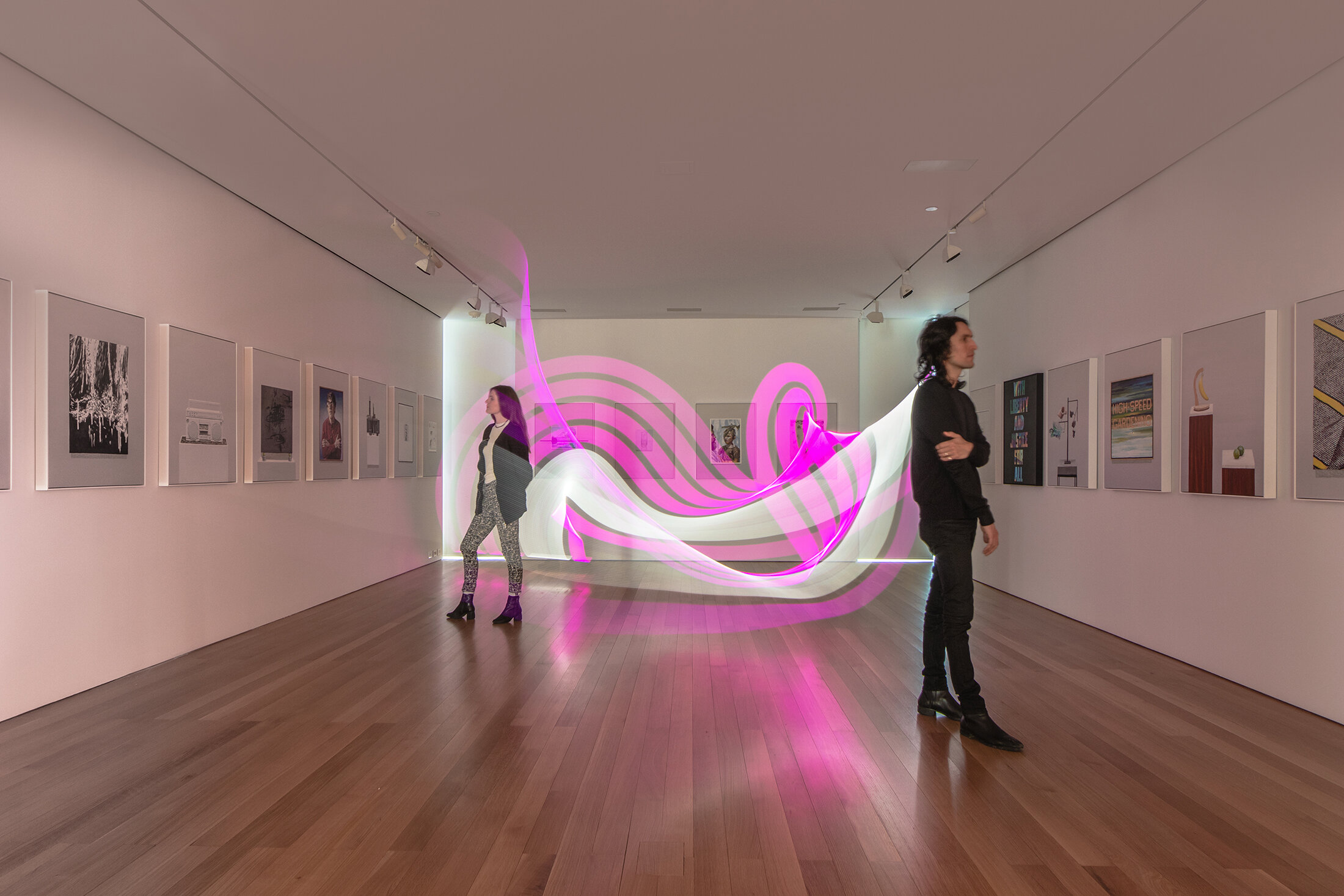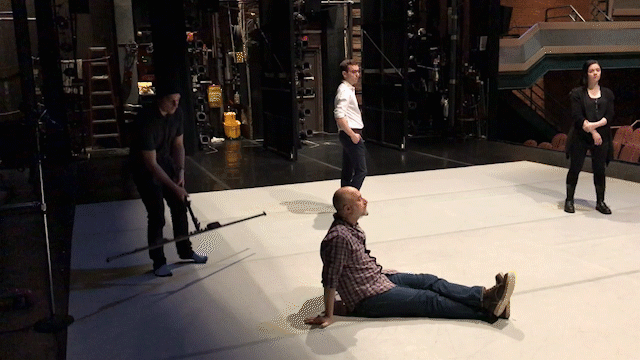culture track
Culture Track is a national study that researches cultural audience behavior. In years prior, the findings were published in a report and presented to local leadership, but we saw an opportunity to expand the initiative into an innovative platform. As the head of design, I led the team through a complete rebrand with refreshed typography, colors, illustrations, photography, and data visualizations. The insights were published as an interactive microsite, with a companion website for ongoing dialogue, cultural content, and promoting launch events.
Creative Direction
Visual Identity
Content Development
Marketing Collateral
Launch Events
Website
The Pixelstick in action.
We wanted to visualize the idea of “living data” in a compelling way. Branded colors behave like charts or graphs, weaving through various scenes in the cultural landscape, from galleries to graffiti. The images became a visual base for the brand, expanding into more graphic solutions as seen in collateral and the web.
A New Visual Language
The initiative had been borrowing the agency’s bright pink for years but now required its own expanded palette. The new colors offer increased energy and a sense of play to the graphics and illustrations. Stylistically we kept the human element in mind, often adopting a hand-written or drawn approach, to balance out the inherent sterility of big data. The chosen typography provides flexibility for a range of uses, from brand communication to data-heavy insights, all with the sophistication of a cultural institution.
Profile illustrations by Maya Ish-Shalom
Team bios designed as Madlibs
Daily content for social media
Global Impact
Since the New York Times launch, Culture Track has shared its insights at summits, annual meetings, conferences, board presentations, and cultural districts throughout the US, Canada, and Mexico. It continues to bring attention to the pressing issues of the moment and empowers leaders to make informed decisions that will ensure the future of culture.
PRESS
“A recent study may stoke the cultural elite’s fears of the fall of western civilization as we know it. According to the research, ‘the definition of culture has democratized’, with participants placing socializing and interactivity as top priorities in cultural activities – putting Caravaggio on the same pedestal as Coachella.”
— the guardian
“Such cultural flattening echoes the effects of capitalist globalization and information technology on labor markets, where the ‘disruption’ of old ways is pushed as a dogma and local borders no longer defend workers from competition from half a world away.”
— artnet
“What fun means is obviously an interesting question, but the whole definition of culture is changing, and the idea that cultural organizations are immune from the incredible changes that are occurring— at dramatically faster speed than ever before— would be incredibly dangerous and naive.”






















